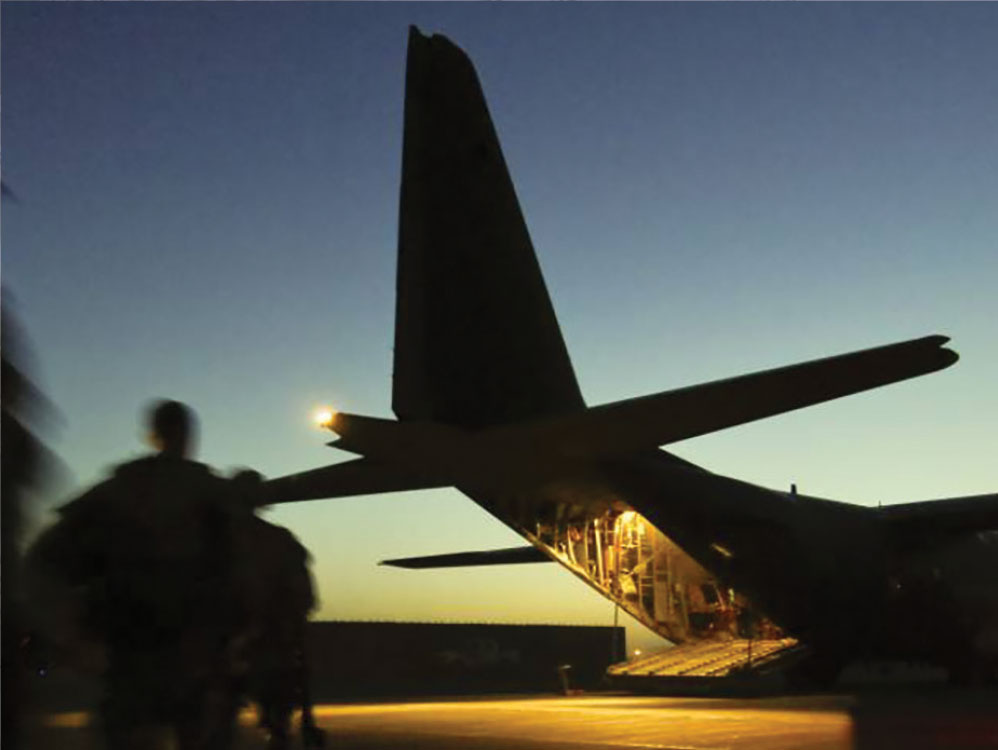One of the flagship projects in the developing aerospace-industry hub at Piedmont Triad International Airport is running into some serious headwinds.
Marshall of Cambridge’s U.S. subsidiary on Oct. 31 notified the N.C. Commerce Department that it’s giving up its rights to a $2.4 million Job Development Investment Grant because it won’t meet its job-creation and investment goals.
The company — which repairs military aircraft like the C-130 transport — had promised to create 240 jobs and invest $50 million in its project at PTI.
But as of Oct. 31, it employed just four people at the Greensboro facility and “there are no plans to grow this labor pool beyond the current four individuals,” said Marianne Williams, head of operations for Marshall USA.
She went on to say that the company will sublet its facility at PTI for up to two years. In the meantime, Marshall “will review the market campaign status and our appetite to bid for the opportunities [versus] certainty of the workload.”
Williams said the “overwhelming reason” for the decision is “significant changes of procurement timelines of the major U.S. military contracts,” Marshall anticipates.
These have pushed out the timeframe for receiving aircraft at PTI “over three years later than originally anticipated” in the business case that underpinned the incentive deal, she said.
The plan for the PTI facility involved the repair of U.S. military C-130s. It was to include bays capable of holding six of the transports, plus a paint shop, support facilities and office space.
Marshall is based in Great Britain, and this summer told investors that it’d lost £120.1 million ($158.1 million) in calendar 2024.
It coupled that to a warning that the company’s board had ordered “a fundamental shift in its operational and investment focus.”
This makes “the development of its [U.K.] real estate assets … not only a priority, but a primary objective,” Marshall said in its annual report.
The company was also at risk of breaching some of its loan agreements and wound up having to renegotiate the terms of one of them, the report said.
Marshall’s broader C-130 business is one of the main problems the board’s stress tests underscored. It was working on and holding 15 former Royal Air Force C-130s pending their resale, which needed regulatory approval from the U.S. government that was slow in coming.
An analysis by the U.K. research firm Equity Development found that Marshall was “in financial distress, with banking covenant breached and cash draining out of the business.”
Its aerospace business “was mostly loss-making,” despite the prospect of selling the former RAF C-130s and a major repair contract with the U.S. Marine Corps. (The company is performing similar work on the Blue Angels’ “Fat Albert.”)
Some of Marshall’s other businesses also weren’t doing well, and it has since sold off at least one of them.
The prospective real estate deal would enable Marshall to “unlock the value” in its U.K. property, which is at the Cambridge City Airport about 65 miles north of London, Equity Development said.
But it will need to find a new home for its aerospace division at a cost “upwards of £100 million,” it said.
That’s the equivalent of about $131.7 million.
Its 480 acres alone is worth more than the company’s £100.4 million ($132.2 million) market capitalization, Equity Development’s analysis said.
At PTI, Marshall was slated to join HondaJet, AAR, Boom Supersonic and JetZero in becoming the core of the airport’s industrial base.
Of those, HondaJet is the only one currently making airplanes. AAR has a service operation there after the company bought out HAECO Americas.
Officials who’ve incentivized the projects understand Boom and JetZero to be high-risk, high-reward plays if those companies succeed in designing, building and selling new types of airliners.

